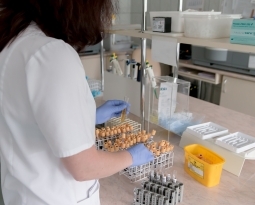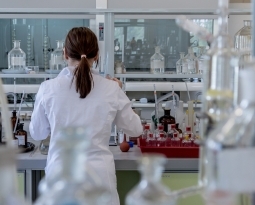Minnesota Researchers Develop Groundbreaking Process
A groundbreaking one-step, crystal growth process for making ultra-thin layers of material with molecular-sized pores, has been developed by a team of researchers at the University of Minnesota. Researchers demonstrated the use of the material, called zeolite nano-sheets, by making ultra-selective membranes for chemical separations.
This new discovery could improve the energy-efficiency of chemical separation methods used to make everything from fuels to chemicals and pharmaceuticals.
“Overall, we’ve developed a process for zeolite nano-sheet crystal growth that is faster, simpler, and yields better quality nano-sheets than ever before,” said Michael Tsapatsis, the lead researcher on the study. “Our discovery is another step towards improved energy efficiency in the chemical and petrochemical industries.”
Today, most chemical and petrochemical purification processes are based on heat-driven processes like distillation. These processes are very energy-intensive. For example, chemical separations based on distillation represent nearly 5 percent of the total energy consumption in the United States.
Several companies and researchers are developing more energy-efficient separations based on membranes that can separate molecules based on size and shape. One class of these membranes is based on zeolites, which are silicate crystals that have pores of molecular dimensions. However, the multi-step processes for manufacturing these membranes are costly and difficult to scale up, and commercial production remains a challenge.
The researchers at the University of Minnesota have developed the first-ever, bottom-up process for direct growth of zeolite nano-sheets, which can be used to make high quality molecular sieve membranes. The new material, is only about five nano-meters in thickness, and several micrometers wide. The new nano-sheets also grow in a uniform shape making it much easier to make the membranes used in chemical purification.
Mi Young Jeon, the first author of the study describes the new material as being like tiling a floor with large, uniform tiles compared to small, irregular chips of tile. Jeon explains that uniform-shaped zeolite nano-sheets also make a much higher-quality membrane with surprisingly high separation values that can sieve-out impurities.
The research findings are a big step forward and researchers are looking forward to the future changes the discoveries will make to energy efficiency in chemical and petrochemical industries.
To find out more about R&D or to determine whether you may be eligible for an R&D Tax Credit Contact a Swanson Reed specialist to see if you qualify.

















